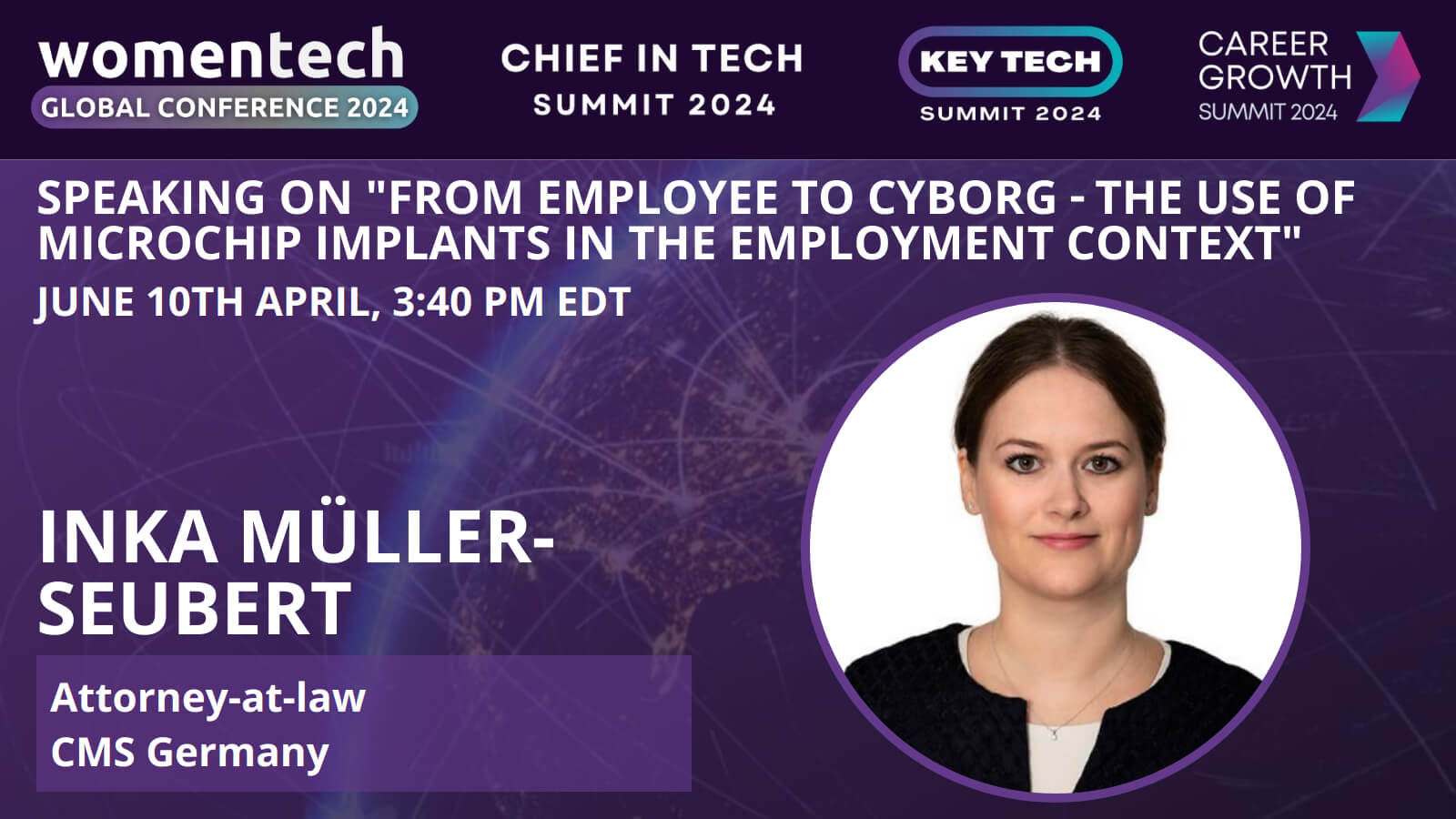Vote by Sharing
Unite 100 000 Women in Tech to Drive Change with Purpose and Impact.
Do you want to see this session? Help increase the sharing count and the session visibility. Sessions with +10 votes will be available to career ticket holders.
Please note that it might take some time until your share & vote is reflected.
Session: From employee to cyborg - The use of microchip implants in the employment context
More and more people are having microchips implanted under the skin to replace conventional memory cards. The microchips, which are about the size of a grain of rice, can store a variety of data, from health data to payment data and public transport tickets.Readers read the data stored on the microchip using near field communication (NFC). The reader must be used at a distance of a few centimetres from the microchip. This type of data transmission is already used for so-called contactless payments with credit cards or smartphones, which require neither the entry of a PIN nor the signature of the authorized person.
The advantages are obvious: cards and keys are no longer needed because all the necessary data are on the microchip.
There are also numerous possible uses in employment, for example as a key for opening doors, recording working hours or for payment in the canteen. What in Germany still seems to be a utopia of the future has already become part of everyday life in Sweden and England, for example.
After this session you will know for what purposes such microchips can be used by employees and what legal framework conditions have to be observed.
Bio
Inka Müller-Seubert, LL.M. focuses on providing labor and employment law advice in the context of restructurings. She furthermore advises on all aspects of individual and collective employment law and service agreements. Inka also has special expertise in employee data protection matters and legal tech. Her clients include international groups as well as medium-sized companies.Inka joined CMS in 2019. Prior to that, she spent three years with an international law firm during which time she was seconded to the legal department of a Japanese trading house in London for one year.



